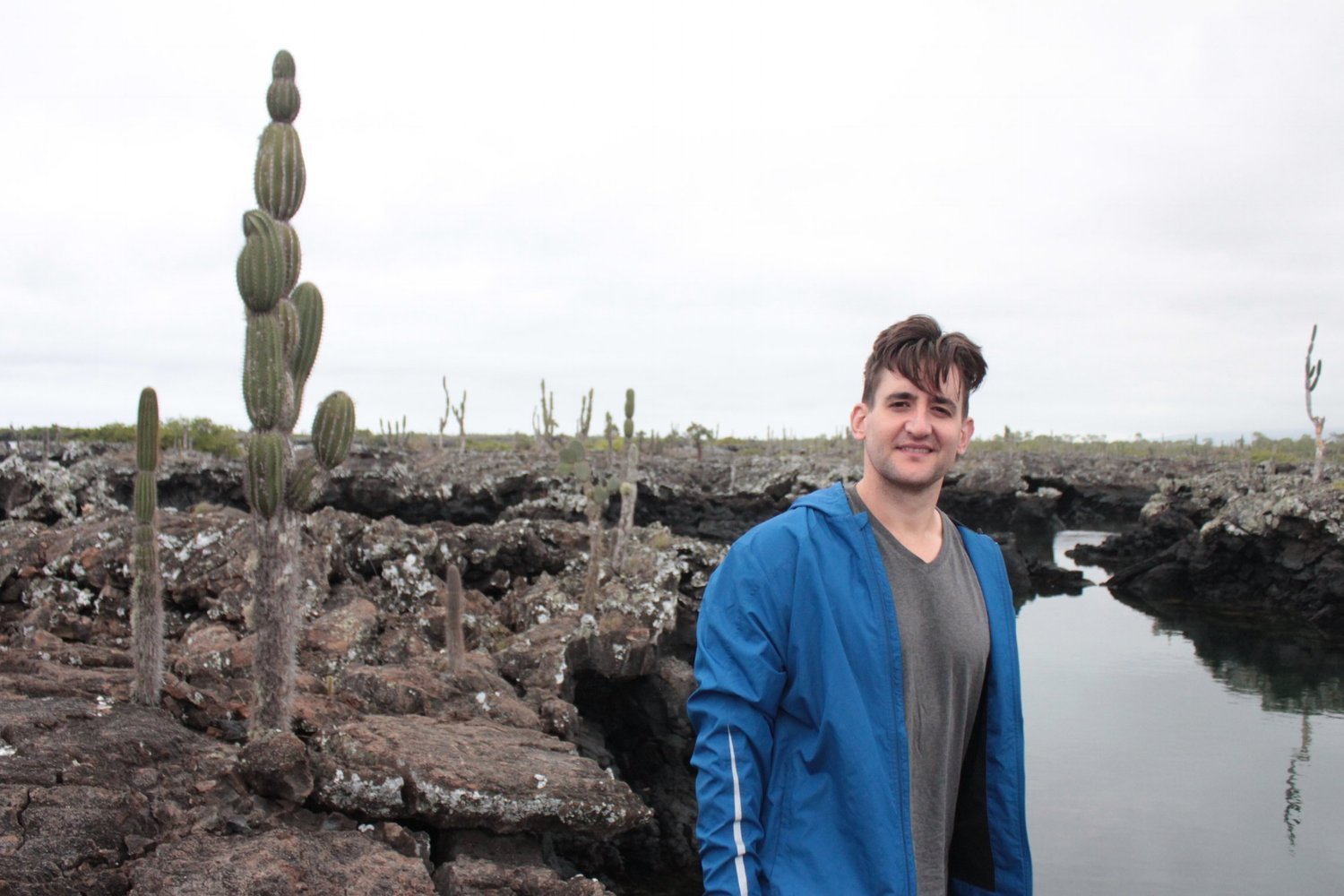
Unconscious Map™
Learn the science of therapy.
Who this is for:
✓ You’ve tried self-help or therapy, and though it provided some insights, you still feel stuck in the same ol’ situation.
✓ You have plenty of self-awareness but little improvement to show for it.
✓ Your IQ is higher than 115 and you tend to be analytical.
✓ You think you know what your problem is yet you have no idea how to resolve it.
✓ Bonus: you’re from the Midwest.
Join the club (literally).
With this program, you will learn exactly what your problem is, and you will gain access to a group that provides all the tools you will ever need to work through it.
Who this is NOT for:
✗ You’re disconnected from reality (then get on your meds and come back when you’re no longer pooping your pants).
✗ You’ve read fewer than four self-help books.
✗ You’ve never been to therapy—you haven’t even tried to work on your issues.
✗ Your IQ is less than 115.
✗ You like taking shortcuts.
The Problem:
Conventional therapy is a hodgepodge of guesswork and magical thinking that only works on accident.
Your therapist is pajama boy and probably doesn’t even work out.
Your therapist doesn’t even know what therapy is because he doesn’t know what emotions are, how they work, and so how to talk through them in a healthy way.
-
“I’ve tried therapy before but the Unconscious Map was different. The direction felt intuitive and safe, like I was being guided through the crevices of my mind by someone who’s been there… and it saved me thousands of dollars in the long run.”
Samantha M.
-
“The framework provided by the Unconscious Map and my sessions with Mark allowed me to articulate and understand several issues that had remained unresolved through past therapy experiences. In just a few sessions I had gained a more holistic view of my behavioral patterns and internal motivations, and finished with a clear path forward for the first time.”
Dustin J.
-
“The work with Mark’s program focused on getting to the bottom of what’s happening to me. He helped me to become aware of how and why my emotions trigger the behaviors they do. It was like putting on the right pair of glasses after wearing the wrong ones for years.”
Dominic G.
The Solution:
Focus on the first principles of therapy:
Learn what emotions are.
Learn how to talk through emotions based on what they are,
Which reveals the root cause of your problem,
Which shows you exactly what you are able to do to resolve it. No, really.
In this program, we show you:
1
The one psychological concept that, if unacknowledged, will completely sabotage your success.
Funny, no psychologist knows to bring it up since I know from firsthand experience they were never taught it.
2
How a false, philosophical dichotomy that originated with the pre-Socratics and left uncorrected makes proper therapy impossible—
Unless, of course, you know how to identify this dichotomy, how it manifests in modern therapy, and how to correct it.
3
What the psychology establishment doesn’t know about therapy—
and, in fact, how their deeply held, unquestioned beliefs keep them from providing life-changing growth to their patients.
4
Why therapy, given the nature of our psychology, must have a specific structure with only three, fundamental aspects,
and how this structure accelerates your growth to bring you more clarity and confidence than ever before. This makes your seemingly complex psychological issues extremely palpable.
5
How to use past failure and devastation as points of reference for future success—
in fact, you will learn exactly why you needed these negative experiences in order to create the life you want.
6
How to boil down your vast array of experience into a single emotional loop.
The creation and realization of this loop has been, for past clients, included in the top five pivotal experiences of their lives—(as it was for me when I wrote down my loop and realized the extent to which it controlled my life completely outside of my awareness).
7
How to talk about and express emotion in the correct way—
and why expressing emotion in any other way will ultimately ruin your chances for success and happiness. You can also use this structure to express emotion in regular social settings in a way that makes you more likable and authoritative, not whiny and weak. (This isn’t feel-goodery or woo-woo, rather a specific process based entirely on the nature of what a human is.)
8
The number one reason why you won’t change,
even when you truly want to, and it’s something no psychologist even knows about.
9
The one question you must ask yourself to bring clarity to your issues.
Paradoxically, it’s the one question I was told never to ask a patient when I was in an Ivy-league graduate program.
Mark Derian is a PhD dropout in psychology and sworn enemy of the American Psychological Association. He is the founding member of Animus and creator of Unconscious Map™.
“The program is best described as a mirror that was painful to look at, but which revealed previously unseen insights into myself and my life. I cannot look at myself and my relationships in the same way anymore, and because of what I now know, they will not be the same anymore... Understanding my emotional issues on a fundamental level is a profound realization for me, this allows me to fully comprehend my own words and actions day-to-day.”
Max W.
“In just two short months of Mark’s program, I have experienced a tremendous improvement in my life. It has given me confidence that I am capable of gradually winning the battles with myself that I thought I would never win. The improvements in my mood, posture, and neuroticism are tangible. This alone is worth five times the cost.”
Luke M.
What you’ll get with Unconscious Map™
✓ A clear delineation of the principles of therapy.
✓ A solution to your psychological issues that's as simple as it is difficult to work through.
✓ All the information you will ever need to guide you through your journey.
✓ More tools than you will ever need to work through your psychological issues.
Program Curriculum
A step-by-step guide to therapy
Part one: Foundations
First learn the fundamentals, including the purpose of therapy and how to find a therapist.
1.1 What this program is
1.2 The purpose of therapy (watch here!)
1.3 Your myth
1.4 How to find a therapist
Part two: Implement foundations
Take the theory you learn in part one and see what this means for therapy.
2.1 What to talk about
2.2 How to talk about it
2.3 Secondary emotional payoff
Part three: The therapy
Learn what to talk about and exactly how to talk about it.
3.1 Significant experiences
3.2 Anger
3.3 Anxiety
3.4 Secrets
3.5 Failures
3.6 Harms
3.7 The Loop
Part four: Emotional process
Therapy for the rest of your life.
4.1 Process Resistance
4.2 The Decision Point
How much is a lifetime of therapy worth to you?
Well, we’ve done the calculations, and it’s worth approximately $72,800. This is based on the average copay multiplied by the number of weeks the average patient will spend in therapy. This doesn’t include the price of insurance, and it doesn’t include the value of your time (which is priceless) wasted from going to a loser therapist for years. It doesn’t even include the fact that conventional therapy is pointless at best—though most likely it will be detrimental.
What if you could get a lifetime’s worth of therapy for a fraction of the cost with exponentially more value?
-
“I was attached to self-help for a long time… but it only took me so far. If you want to go further, you need to get off that train and go it on foot. I couldn’t imagine a more comprehensive guide for this next stage of my growth than Mark and his program of therapy.”
Jack H.
-
“I thought my problems and struggles weren’t significant enough to merit therapy, yet this program showed me exactly what I needed to do to learn what I needed to learn. And you won’t find a better therapist than Mark. He truly understands psychology and how it influences man’s relationship with the world. He knows what works and he offers something truly transformative. Only you can ever really change yourself, but Mark is the best guide out there to help you navigate your inner world. For the first time ever, I am excited for what the future holds. And that is priceless.”
Howard W.
-
“The Unconscious Map gave me an entirely new perspective on how my emotions and my mind work. Mark guided me through the structure of my mind and the tricks it has been playing on me. I was able to find the deeper causes of my behaviours and discover a way out of it.”
HDV
Is Unconscious Map™ right for you?
If you’re only looking for blind validation, a therapist who thinks he should be your friend, or yet another mindset training program, then look elsewhere.
Our structure of therapy is simple, but not easy—so if you’re willing to really commit to overcoming your issues and direct all your focus on how to understand and process your emotions, join us.
“[Unconscious Map] works—though it’s definitely not for the faint of heart.”









